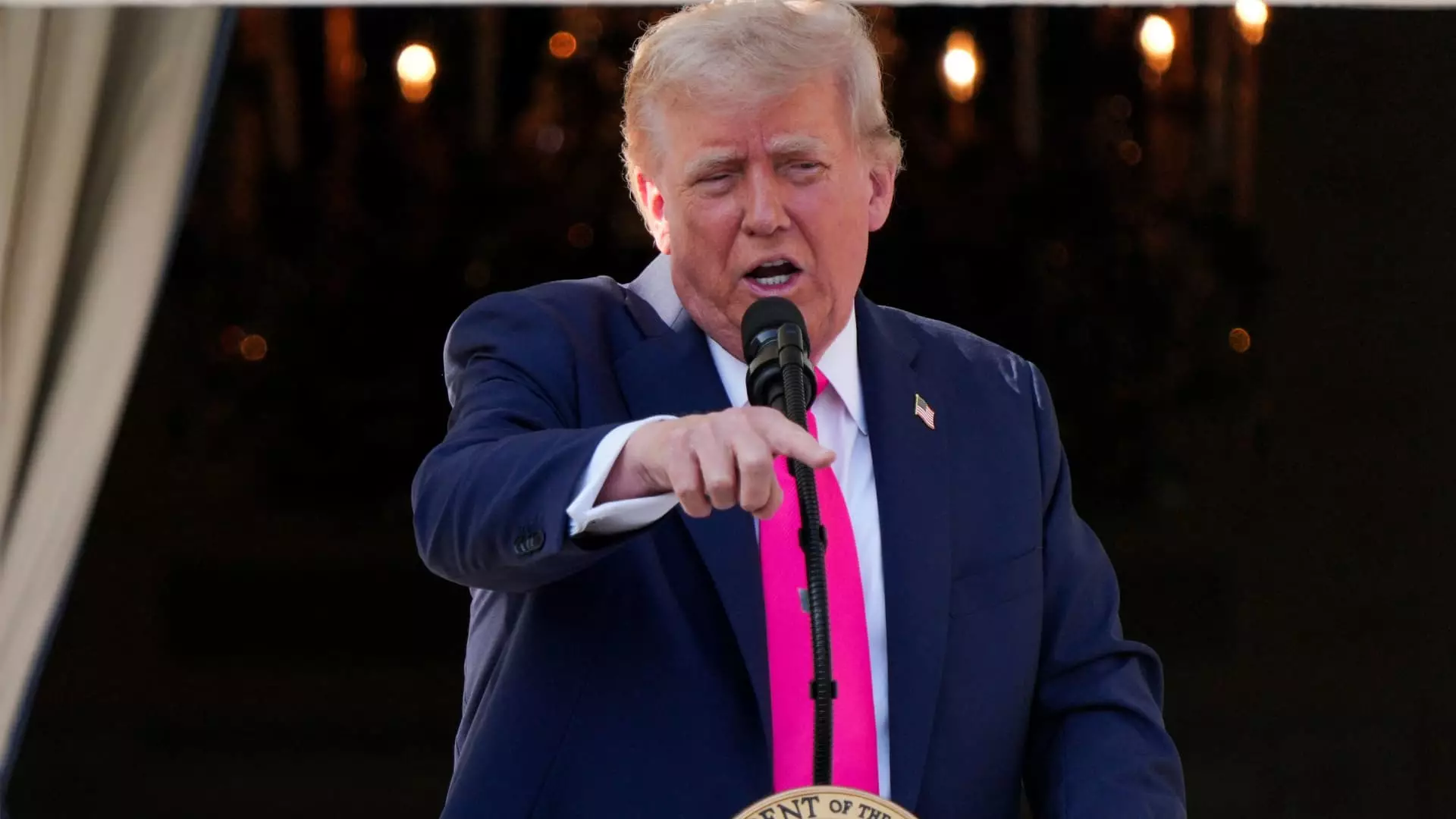In an era where economic diplomacy should ideally serve as a bridge rather than a battering ram, recent actions by the U.S. government mark a troubling descent into economic brinkmanship. The decision by President Trump to unilaterally send “take it or leave it” tariff proposals to twelve nations is emblematic of a dangerously confrontational approach that, rather than fostering negotiations, threatens to cripple the delicate fabric of global trade. Such tactics—characterized by abrupt, non-negotiable demands—risk alienating allies and escalating a trade war that could have long-lasting repercussions beyond mere tariffs.
This strategy underscores a fundamental misunderstanding of the complexity embedded within international commerce. The assumption that issuing stiff, pre-set demands will lead to swift concessions grossly underestimates how interconnected and interdependent modern economies truly are. The move to send aggressive tariff letters, especially without transparent communication or a willingness to engage in genuine dialogue, suggests a shortsighted grasp of diplomatic nuance. It is less about fostering mutual benefits and more about wielding economic power as a blunt instrument—an approach that can erode the global trust necessary for stable trade relations.
The Illusory Promise of Short-Term Gains
President Trump’s stance appears driven by a desire for quick wins, or at least the perception of leverage, but in reality, this approach risks undermining the very foundation of U.S. economic leadership. While the administration touts tariffs as a means to rebalance trade deficits and protect domestic industries, this narrative dismisses the broader, more insidious costs. Higher tariffs inevitably lead to increased prices for consumers and businesses—effects that undermine economic growth, diminish purchasing power, and reshape supply chains in unpredictable, potentially destructive ways.
Additionally, the claim that tariffs up to 70% might be implemented soon illustrates a reckless willingness to gamble on an economic gamble, disregarding the chaos it can unleash. The suspension of tariffs mimicking a high-stakes poker game—where bluffing replaces strategic negotiation—can backfire spectacularly. Markets are sensitive to such signaling, and volatility will intensify as uncertainty grows. Instead of a calculated, strategic approach to reform trade policies, what we witness is a reckless push for quick confrontation, ignoring the long-term stability that a balanced, diplomatic approach can offer.
The Costs of Negotiation Failures and Diplomatic Isolation
The U.S. approach has already led to tangible setbacks—failing negotiations with key partners like the European Union and India, and a limited, tentative agreement with Vietnam. These failures are symptomatic of a broader, systemic issue: seeking to negotiate in an environment of hostility rather than cooperation is inherently flawed. While some may see a trade war as a means to reclaim economic superiority, it is more likely to ignite retaliatory measures that diminish American exports, diminish market access, and ultimately hurt consumers at home.
Furthermore, the dissonance between rhetoric and reality is stark. The administration claims that negotiations are ongoing, yet the language of “better uniform letters” and the looming threat of escalating tariffs suggest a mindset more inclined toward punishment than partnership. This self-inflicted isolation damages America’s global standing, making it harder to forge alliances or create multilateral agreements that are essential for addressing shared challenges like climate change, technological regulation, and supply chain resilience.
A Center-Left Perspective on Economic Diplomacy: A Call for Prudence
From a center-wing liberal perspective, the reckless escalation of tariffs is an unnecessary gamble that jeopardizes decades of diplomatic progress. It is imperative to recognize that economic policies should aim to create win-win scenarios—leveraging diplomacy and multilateral negotiations rather than succumb to the temptation of economic coercion. The unilateral imposition of tariffs, especially in such an arbitrary manner, reflects a troubling underestimation of diplomacy’s true power: patience, mutual understanding, and cooperation.
Instead of punishing allies and foes alike, policymakers should prioritize rebuilding trust and pursuing pragmatic solutions that respect the intricacies of global trade systems. The threats of escalating tariffs, without considering the repercussions for global stability or the livelihoods of ordinary citizens, reveal a shortsighted vision. Constructive engagement, not unilateral threats, should be the guiding principle. It is through sustained, honest dialogue that meaningful, fair trade agreements can be crafted—ones that serve the interests of both the United States and the international community, rather than perpetuating a cycle of economic conflict and mutual harm.

Leave a Reply